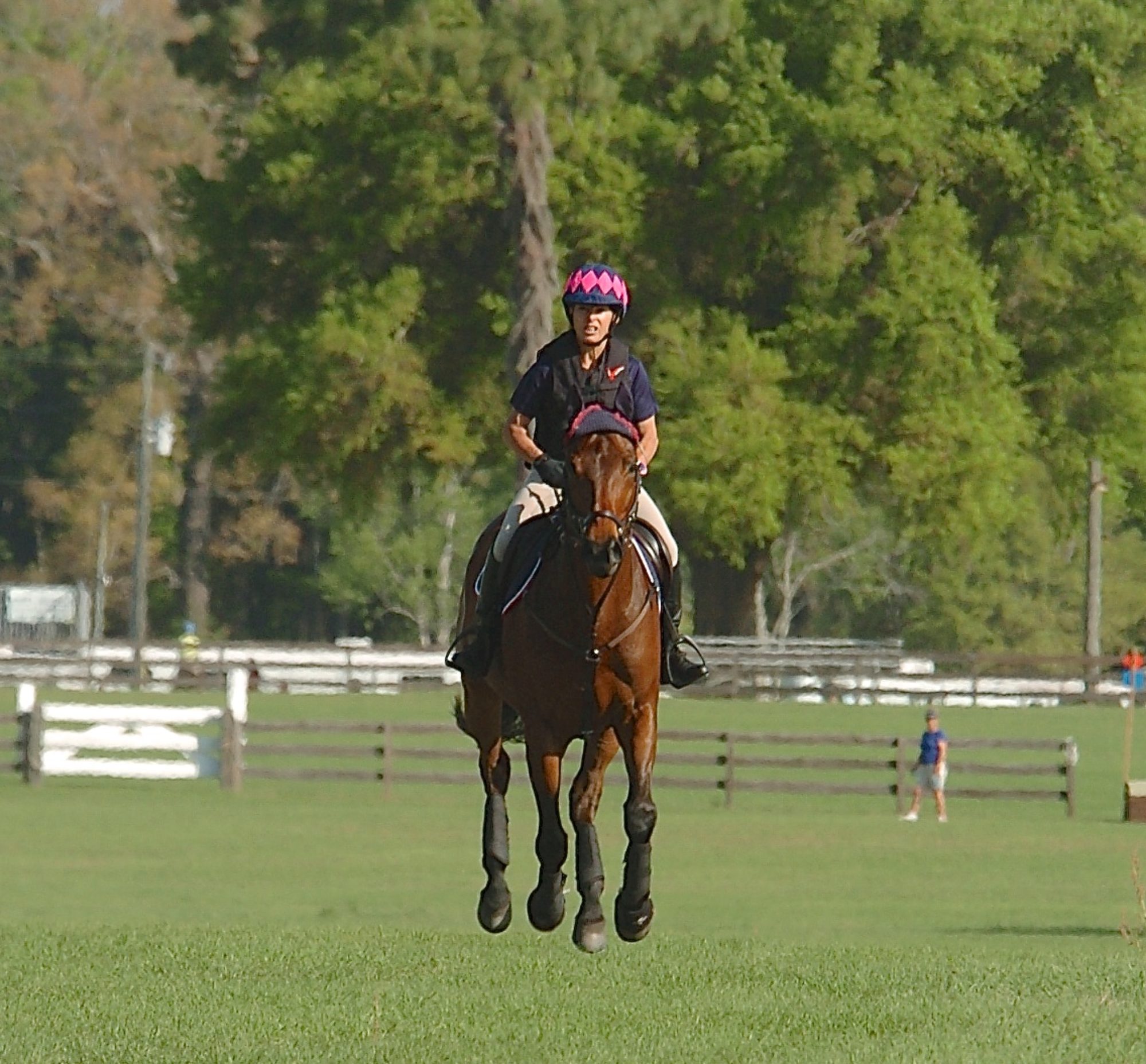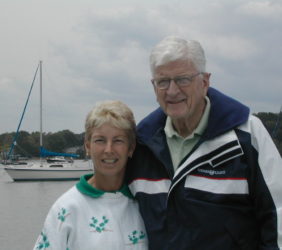Wednesday, Sept. 26
We awoke in Forks, WA to an absolutely perfect day. It is cool for a brief period in the morning, then warms to the low 70’s. We headed off to Neah Bay and Cape Flattery, in the most northwest corner of the Olympic Peninsula.
The road ends at the trailhead to the Cape Flattery Trail. It is a mile hike to the end. From the tip of this trail you can view Tatoosh Island while standing on the most northwesterly tip of the contiguous lower 48states. There are rugged rocks, kelp, sea lions, birds, and beautiful jade waters of the Pacific Ocean. We saw whales, which appeared to be Orcas, but it was far off, so not sure.
Neah Bay is the center of the Makah Indian Reservation. All of the land from Neah Bay out to Cape Flattery is owned and managed by the Makah tribe. They have a large fishing fleet in Neah Bay, which is about their only economic activity. Much of the rest of the island depends on logging for their livelihood.
John’s scooter provided him some excitement as he traveled part of the trail to Cape Flattery. It then became rocky, full of roots, and constructed slat walkways, so we abandoned mission and went back to the van. I went back on the trail to complete my photo op mission.
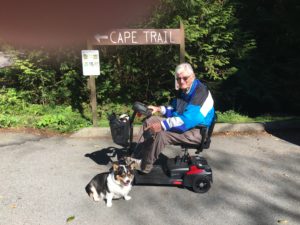
If you click on the link below you will see John on the trail.
AED6AE1B-A5F7-4612-BBD1-E163D5348B4E
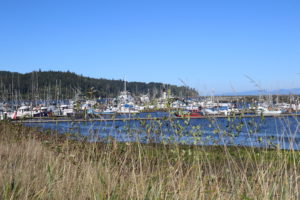
Above….fishing fleet in Neah Bay.
BELOW……views from Cape Flattery. Lighthouse on Tatoosh Island. Whales, circled in photo. As history tells it, the Indians watched from this point as ships came from afar looking for the Northwest Passage.
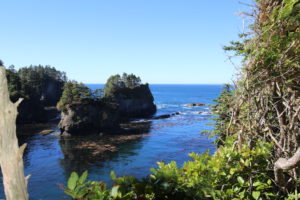
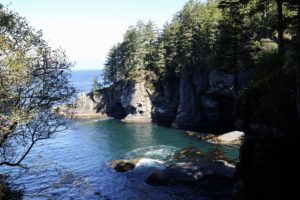
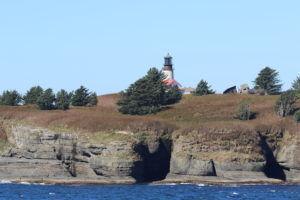
The picture below shows the whales.
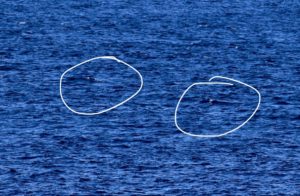
Sea lion island.
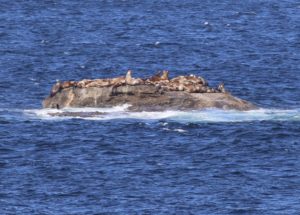
The mountains in the background are Canada.
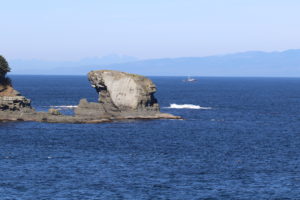
The state of Washington has constructed many overlooks along the coast to provide viewing of whales and seals. Much of the whale population is endangered because of so many dams being built that prevent the salmon from returning to the sea. Salmon are the main diet of the whales.
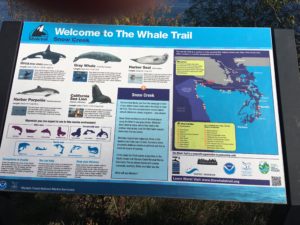
Later in the day we visited part of the HOH rainforest. The Visitor Center was closed, so Park Rangers advised us to see the Lake Quinalt area tomorrow. There is a rain forest and apparently many excellent interpretive sites and hikes, as well as drive by scenery.
